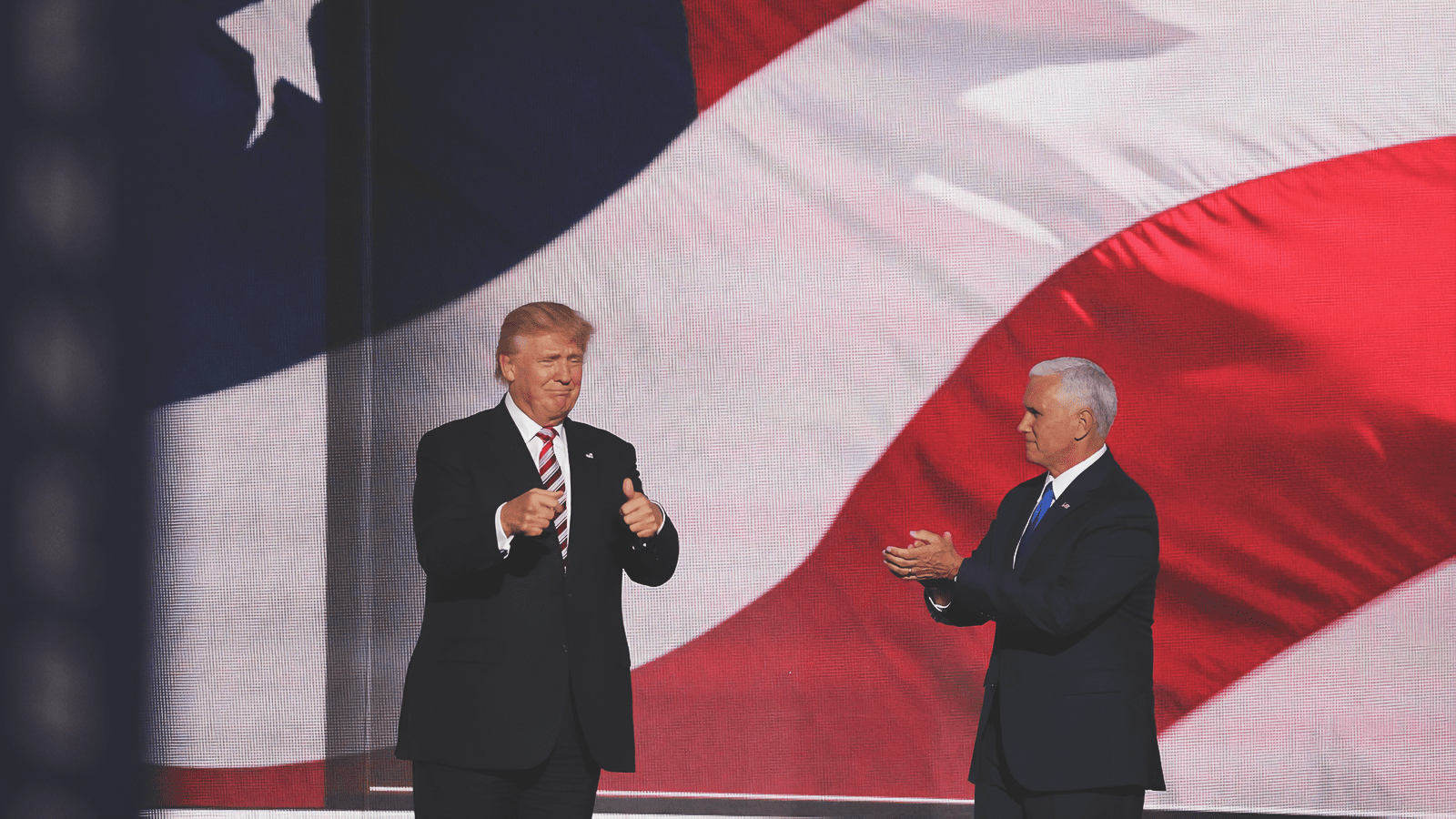Should We Pray for the President?
The well-known Christian leader, Franklin Graham, has called for Sunday, June 2 to be a nation-wide day of prayer for President Donald Trump. Clearly, the American people have deeply-held opinions about President Trump. Some Christians have even expressed reluctance about this focus. So, biblically, how should we respond? This special edition e-devotion will replace our normal Monday post and is preemptive to tomorrow’s call to prayer.
Should We Pray?
We would do well to remember the political realities of the early centuries. Roman religion was polytheistic. They worshiped a wide array of gods and spirits, including a collection of both Greek gods and a number of foreign cults. Roman Emperors, like Nero, were openly pagan in the worst sense.
Nero, who reigned from 54 to 68 AD, represented everything decadent about that period in Roman history. He was self-indulgent, cruel, and violent as well as a cross-dressing exhibitionist. He was known for lavish parties, blatant immorality, the burning of Rome, the killing of Christians, and the continued economic chaos that had plagued Roman society. Nero was murderous, even killing his own mother. His legacy culminated when, upon hearing of the emperor’s death by suicide, “…citizens ran through the streets wearing caps of liberty as though they were freed slaves.”
Persecution of the early church continued sporadically and in localized areas from the beginning of the church until 313 AD with the passage of the Edict of Milan. Early church historian Eusebius, whose works are the only source for many of these events, speaks of “great multitudes” having perished. The government was not a friend of the gospel in the early centuries of the faith.
What the Bible Never Mentions
Jesus, Peter, Paul, and all the first-century Christians lived and ministered under the miserable rule of the Roman Empire. Yet, it is interesting that no fearful, derogatory, or contentious words are found anywhere in the gospels or epistles concerning the political context of the day. This is quite surprising for modern minds, given the oppressive and godless governmental setting of the Roman system. We find no partisan debates, no derogatory references to specific leaders, and no real criticism of the system by early biblical writers.
All first-century Christians ministered under the miserable rule of the Roman Empire. Yet, no fearful, derogatory, or contentious words are found anywhere in Scripture concerning the political context of the day.
Why was this? I propose this silence can only be deliberate. The world view of early Christians was rooted in the firm belief in the transcendent power of the gospel of Christ and the empowering presence of the Holy Spirit. They were on a singular, focused, and triumphant mission. They were so confident in the message of Christ that no system, no government, no opposition could stop the life-transforming truth.
What the Bible Commands
So, what do we need to know today, from a clear biblical perspective, about the encouragement to pray for our sitting president? Three commands concerning our government are clear. None of these has any reference to one’s preferred political party, a specific form of government, or our personal sentiments toward a particular politician. These commands transcend time and circumstance and are to be embraced by Christians everywhere.
How Christians Should Respond
1. We should pay our taxes even when we disagree
An account in Mark’s gospel tells of the religious leaders trying to trap Jesus with a question about the legitimacy of paying taxes to Rome. Knowing their hypocrisy, Jesus took a coin, inquired about the image on the coin, and responded, “Render to Caesar the things that are Caesar’s, and to God the things that are God’s” (Mark 12:17).
Certainly, Jesus did not agree with the policies and personalities of the Roman leaders. To a first-century Jewish mind, Caesar was an illegitimate ruler. Worse, the coins bore on one side the blasphemous inscription, “Tiberias Caesar, son of the divine Augustus,” and on the other, “pontifex maximus,” which a Jew would have understood as “High Priest.” Jews would reject the notion of paying tribute to this pagan emperor. Jesus’ answer challenged this assumption. Since even secular authority comes from God, paying taxes to him was more than lawful; it was obligatory.
2. We must pray for political leaders for the sake of the gospel
In 1 Timothy 2:1–4, the Holy Spirit through Paul commanded, “First of all, then, I urge that supplications, prayers, intercessions, and thanksgivings be made for all people, for kings and all who are in high positions.” Clearly, we are to pray for all political leaders, regardless of our personal opinion of their character or policies. But why?
We need to pray. Not only to benefit our political leaders, but ultimately that our prayers will transform us as ambassadors of the Good News.
“That we may lead a peaceful and quiet life, godly and dignified in every way. This is good, and it is pleasing in the sight of God our Savior, who desires all people to be saved and to come to the knowledge of the truth.” Notice that our prayers ultimately affect our own attitudes and behaviors. The behaviors we demonstrate as a result of our prayers herald the gospel so that people will come to the knowledge of the truth. We need to pray, certainly in hopes that our prayers will positively affect our political leaders, but ultimately that our prayers will continually transform us as agents of the good news in a fallen world.
3. We must honor the primary political leader as a matter of testimony
Peter wrote to Christians who were being persecuted and dislocated by hostile persecution. His focus as he wrote was on the paramount realities of grace, hope, and the promises of eternity. In 1 Peter 2:17, Peter gave four imperative commands: “Honor everyone. Love the brotherhood. Fear God. Honor the emperor.” Not much commentary is necessary. Peter is clear, “Honor the political leaders.” This is good advice for Christians who lack discriminating filters on social media or in their public political punditry.
The Apostle Peter is clear: “Honor the political leaders.” This is especially good advice for Christians who lack a discriminating filter on social media.
So…PRAY!
So, let us pray. Let us pray for all political leaders. Let us pray regardless of partisan preferences or personal opinions. Perhaps God will change our leaders. Surely, He will change us.
Let us pray for all political leaders. Let us pray regardless of partisan preferences or personal opinions.
Copyright © 2019 Daniel Henderson. All rights reserved.



